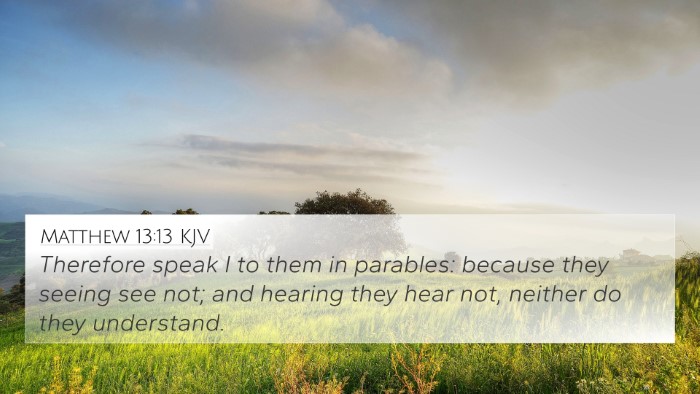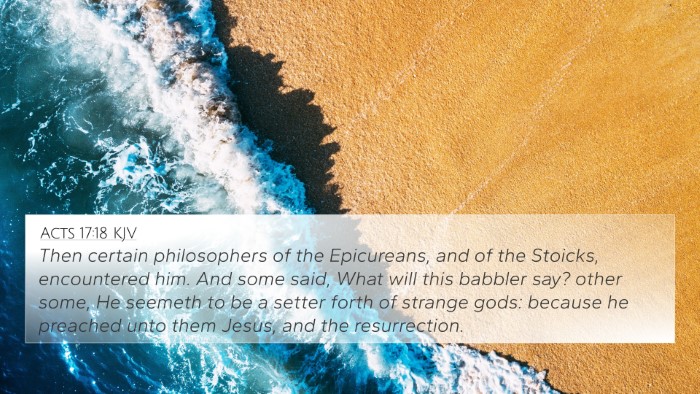Ezekiel 20:49 - Interpretation and Meaning
Bible Verse: Ezekiel 20:49
"Then said I, Ah Lord God! they say of me, Doth he not speak parables?"
Summary of Interpretations
The verse Ezekiel 20:49 reflects a moment of frustration for the prophet Ezekiel as he addresses the doubts expressed by the people concerning his message. This verse emphasizes the struggle between divine communication and human misunderstanding.
Commentary Insights
Matthew Henry's Commentary
Matthew Henry emphasizes that the prophetic messages often seemed obscure or parabolic to the people. Ezekiel laments that rather than accepting the seriousness of his words, they dismiss them as mere stories. This reflects a common theme in prophetic literature where the clarity of God's message is obscured by human skepticism and disinterest.
Albert Barnes' Commentary
Albert Barnes points out that the use of 'parables' indicates a failure to grasp the deeper spiritual truths that were being revealed. He suggests that Ezekiel is highlighting the disconnect between the intended meaning of God’s message and the prevailing interpretation by the people, which leads to a lack of repentance.
Adam Clarke's Commentary
Adam Clarke elaborates on the context of Ezekiel’s anguish about his prophetic calling. He notes that the people’s dismissal of his messages as mere parables signifies an unwillingness to deal with the reality of God’s impending judgment. This attitude reveals a broader theme within scripture regarding the reception of divine instruction.
Cross-References
This verse draws connections to several other biblical passages that explore similar themes of prophecy, misunderstanding, and God's communication with humanity:
- Matthew 13:10-17: Discusses how Jesus spoke in parables and the reasons behind it.
- Isaiah 6:9-10: The Isaiah commission dealing with seeing but not perceiving.
- Jeremiah 23:28: The distinction between a true prophet and a deceiver.
- Hosea 12:10: God’s use of parables and similes to convey His messages.
- 1 Corinthians 2:14: Spiritual truths discerned spiritually, highlighting human inability to understand without divine revelation.
- John 1:10: Refers to the world not recognizing the Word (Jesus), paralleling the people's rejection of Ezekiel's messages.
- Acts 28:26-27: Quoting Isaiah on the hardness of hearts in rejecting God’s message.
- Ezekiel 12:22-25: The people’s sayings regarding the delays of prophecies, echoing the sentiments in Ezekiel 20:49.
- Luke 8:10: Secrets of the kingdom revealed to the disciples while kept from the others.
- Proverbs 1:7: The fear of the Lord is the beginning of knowledge, reflecting the foundation for understanding God’s words.
Thematic Connections
Ezekiel 20:49 fits into broader themes concerning:
- Human Rejection of Divine Wisdom: A recurring motif throughout scripture where individuals fail to heed God’s warnings.
- God’s Communication Style: The use of parables and obscure sayings to engage listeners and provoke thought.
- The Role of the Prophet: The challenges faced by prophets in delivering God’s messages in a world predisposed to disbelief.
Tools for Understanding
For anyone studying scripture, utilizing tools such as a bible concordance or a bible cross-reference guide can greatly enhance understanding. These resources allow readers to:
- Identify connections between Bible verses.
- Explore deeper themes across various books of the Bible.
- Engage in comprehensive Bible cross-reference studies.
- Find biblical themes relevant for sermon preparation and personal studies.
Conclusion
Ezekiel 20:49 serves as a poignant reminder of the hurdles in comprehending scriptural truths. The interplay between divine intent and human perception continues to be a relevant discussion in the study of the Bible. By employing cross-referencing techniques and studying prophetic literature, one can unlock the richness of God’s messages and foster a deeper understanding of His word.






